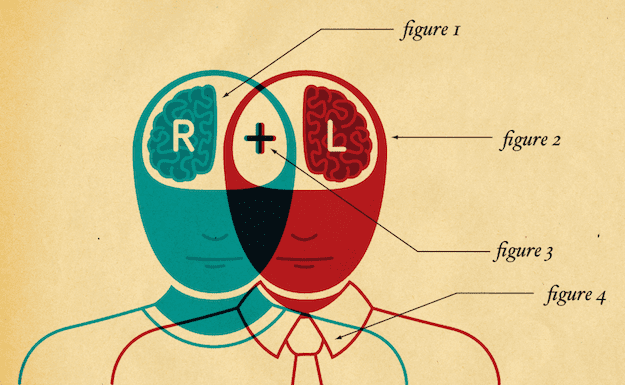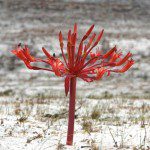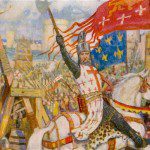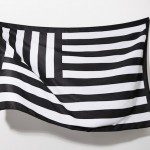 “If you act according to a belief, that is the same thing as having the belief.” – Margaret Atwood (Toby, quoting Adam One, in MaddAddam)
“If you act according to a belief, that is the same thing as having the belief.” – Margaret Atwood (Toby, quoting Adam One, in MaddAddam)
“We read to know we’re not alone.” – William Nicholson, Shadowlands
***
Before you begin reading, you should know the following:
- I will not be discussing the Hunger Games series or the Divergent series. I haven’t read or seen any of the books or movies.
- I will be sharing some thoughts about Margaret Atwood’s MaddAddam trilogy, which includes Oryx and Crake, The Year of the Flood, and MaddAddam. So: SPOILER ALERT!
Still with me? If so, read on…
***
Fiction writers have always amazed me. I took one Creative Writing class in college, and it just about killed me. Each student was required to write two short stories. Throughout the semester, students read and discussed each story with the author present; the author was not permitted to speak. It was painful to sit quietly and listen to other students casually pick apart the words and completely miss the point of my story!
Other than one short murder mystery—hastily written during an Agatha Christie phase—those two stories are the only complete works of fiction I’ve ever written. I so admire those who can create characters, construct plot, and weave profound meaning into the whole, seemingly out of thin air. Margaret Atwood is a writer, a modern master, who makes all of that look easy. Her creativity is awe-inspiring.
***
Last year, Atwood completed the final book in the MaddAddam trilogy (MaddAddam). The trilogy is set in the not-too-distant future marked by extreme temperatures and weather. The economic divide is also extreme: people either live and work in gated Corporations, or they eke out a living in the crime-ridden Pleeblands. A major group of characters within Atwood dystopian world is a sect of Christians called God’s Gardeners. The 2nd book of the trilogy, The Year of the Flood, focuses almost exclusively on the members of this group as they struggle to survive in a deteriorating world.
The detail and background that Atwood gave to the God’s Gardeners is astounding. Each section in The Year of the Flood begins with a homily from Adam One (the leader of the God’s Gardeners) and a hymn from the God’s Gardeners hymnbook. In the audiobook, the hymns are sung by a tenor soloist, sometimes accompanied by a choir. Through these homilies, hymns, and elsewhere in the book, Atwood provides a glimpse into the Biblical hermeneutic of the Gardeners. Creation is sacred. Man-made pollution, materialism, and waste are cardinal sins. God made everything—plants, animals, and humans—for a purpose; using these gifts against their intended purpose is a grave sin. It’s evident that this hermeneutic is developed as a response to the reality on the ground. These are new wineskins indeed.
In addition to the hermeneutic, there are characters within the Gardeners with differing adherence and devotion to the community’s beliefs and practices. The wisest ones live according to their beliefs despite their significant doubt. Toby, a primary character in this book and in MaddAddam, is rescued from a vicious boss and given a home with the Gardeners. Toby never quite buys into all the beliefs and strict customs of the Gardeners, but she is still loved and protected and given a home. She works as a teacher to young Gardeners, and apprentices under an “Eve.” (All leaders within the Gardeners are designated as Adams and Eves.)
I relate to Toby. I can’t exactly say how much of the story of Jesus (and how much of the Bible) I believe is literal, figurative, or just myth/hearsay. It’s a hell of a lot of doubt for a so-called Christian to have. However, I aim to keep living as if it were true, with hope that the Holy Spirit will be faithful.
***
Margaret Atwood is a tremendously gifted and accomplished writer, so the insights one can glean from her word are profound and numerous. But I believe that any act of writing is a divine act in two key ways, regardless of the talent of the writer.
- The act of writing demonstrates a key characteristic of God. An individual bears the image of her Creator when she creates a story.
- The act of writing necessarily compels the writer to share something of herself. Those who read the work are looking at a window into the soul of the writer.
I’ve always loved the quote from Shadowlands: “We read to know we’re not alone.” I didn’t fully understand why this was true until I understood that books, stories, songs, paintings all connect us to the artist. This connection branches out to all readers, listeners, and admires of the artist’s work. In opening these thin places of profound connection, artists are creating a potential and a capacity for Love.
–













